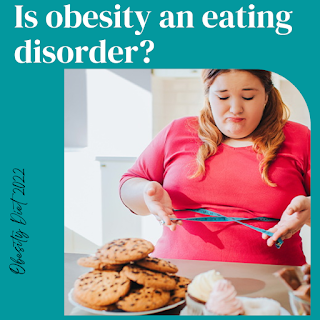Is obesity an eating disorder?
“Obesity as a Health Condition, Not an Eating Disorder”
Obesity
A BMI (body mass index)
of 30 or higher is considered obese, which places
a person at a high risk for conditions like cancer, heart disease, diabetes,
and stroke.
Eating disorder
Eating disorders are
psychological problems marked by significant and ongoing disturbances in eating
patterns and the uncomfortable thoughts and emotions that go along with them.
Anorexia, bulimia, binge
eating disorder, avoidant restricted food intake disorder (ARFID), and other
defined feeding or eating disorders are among the various categories under
which eating disorders can be classified (OSFED).
An eating problem can be
brought on by a multitude of circumstances, such as trauma, the control
paradox, environmental, biochemical, and psychological variables, just like
obesity. Medical and mental health specialists are the most effective treatment
option for many eating disorders since eating disorders are frequently associated
with other mental health disorders.
The comorbidity
connection
Comorbidity
is the occurrence of two or more illnesses or disorders in a person, either
concurrently or sequentially, when the presence of one problem or illness is
likely to exacerbate the other. Eating disorders, in particular binge eating
disorder, are significantly more common in people with higher BMIs.
Additionally, persons who battle obesity may simultaneously battle anorexia as
a means of restricting their food intake in an effort to lose weight.
Eating disorder versus
obesity treatment
Treatment for eating
disorders and obesity is necessary. Obesity may develop from serious health
issues or hereditary problems that can only be safely and efficiently treated
by a medical practitioner. Obesity is not only about the amount of food
ingested. Eating disorders must also be treated physically and mentally, and it
is preferable to do so under the close supervision of medical professionals and
mental health professionals.


.png)

Comments
Post a Comment